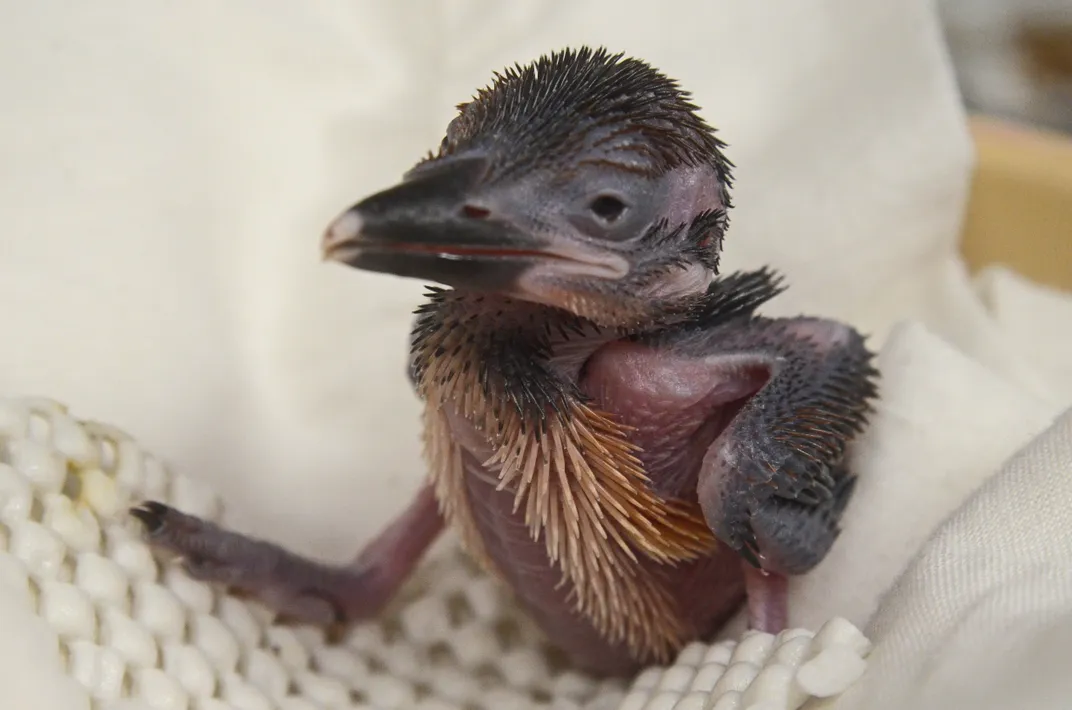This Royally Adorable Baby Kingfisher Perpetuates a Species Extinct in the Wild
A fine soon-to-be-feathered friend joins the menagerie at the Smithsonian Conservation Biology Institute
/https://tf-cmsv2-smithsonianmag-media.s3.amazonaws.com/filer/aa/58/aa58c6f6-0e3a-41a1-a20e-33a5129d75b2/kingfisher3.jpg)
A small bird native to a small island, the Guam kingfisher is a humble beauty. Known for its cobalt-blue beak and wings, coffee-brown body and soulful round eyes, the tree-nesting flyer died off in the wild in the late 1980s, victimized by a species of invasive snakes. Since then, conservationists have been working desperately to keep the unique avian alive in captivity.
It is, then, with special pride that the Smithsonian Conservation Biology Institute (SCBI) just announced the hatching of a Guam kingfisher on site in northern Virginia earlier this month. Captured on camera bare-skinned and with eyes closed, the little female displays all the calm and tranquility her Halcyoninae subfamily implies.
But that will change. These fishers are quite feisty once they reach adulthood, known for piercing pecks, grating calls and relentless defenses of their territory. Once paired up, males and females tend to live lives of secluded monogamy, fighting off encroachers together as they raise their young. Even the selection of a nesting location is a collaborative effort.

It’s understandable, then, that Guam kingfishers tend to be picky about their partners. But this pickiness poses serious challenges for the humans trying to keep the birds alive by breeding them in captivity. While breeders were successful in getting the new chick’s mother and father to mate, the two did not make an authentic connection, and failed to form parental bonds with their egg.
This meant that SCBI personnel had to incubate the youngling artificially; they will be rearing it themselves in the months ahead. Hatched after an incubation of 22 days, the little one weighed in at 5.89 grams. It is the 19th Guam kingfisher tyke to make its debut at the SCBI since the institute began its kingfisher conservation campaign back in 1985. Given that the birds number only 140 or so worldwide, every kingfisher counts.
/https://tf-cmsv2-smithsonianmag-media.s3.amazonaws.com/accounts/headshot/DSC_02399_copy.jpg)
/https://tf-cmsv2-smithsonianmag-media.s3.amazonaws.com/accounts/headshot/DSC_02399_copy.jpg)